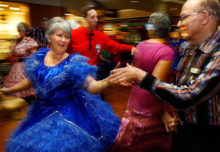Dear Hannah,
My bladder leaks when I least expect it! Not only is it embarrassing, it is keeping me from participating in the activities I like to do. I am feeling like I am losing control of my life!
– Break the Silence, End the Stigma on Bladder Leakage
Dear “Break the Silence”,
Did you know that bladder leakage, known as urinary incontinence, affects 1 in 10 Canadians? When there is an interruption in the signals between the bladder and the brain (which can be caused by many factors), leakage can occur. Common causes include physical changes, nerve damage, weight gain and medication side effects. While bladder leakage is common, most of us tend to clam up about it. They’re too embarrassed or ashamed to bring it up, not only with friends, family members, but even with healthcare professionals. That could mean they are not getting adequate help and they are not accessing the support and the tools that are available. Bladder issues can deeply affect relationships with family and friends.
Taking Back Control:
Establish a relaxing bedtime routine! Read a book or take a bath, follow a consistent sleep schedule, make sure the room is dark, limit liquid consumption, and don’t eat a large meal right before bed.
Speak to your physician! There are cutting-edge medications and injections for bladder control.
Buy a discreet product offering superior protection! Today you can buy more comfortable disposable undergarments like Depend Silhouette Briefs for Women or Depend Real-Fit Briefs for Men. These briefs have an advanced absorbent design that helps prevent leaks and locks in odours. You can look and feel great while staying protected at all times. Poise Impressa bladder Supports is an exciting innovation for women who experience light bladder leaks. The over-the-counter internal device, inserted like a tampon, helps stop unexpected leaks before they happen by placing pressure on the urethra.
Bladder leakage can affect one’s self-esteem and leads to a fear of developing intimate relationships. People who experience bladder leakage feel as though the condition dominate them, instead of the other way around. But by actively seeking the support and information you need to manage your bladder leakage, you’re putting yourself back in the driver’s seat. Not only will you take control of your condition, but you will help reduce the stigma around the topic and inspire others to do the same.
Check out this website: Canadian Continence Foundation,
http://www.canadiancontinence.ca/EN/frequently-asked-questions.php
Dear Hannah,
Every pharmacy I pass has a sign out front “Get your Shingles Vaccine here.” I had Chickenpox as a child, and a light case of Shingles (Herpes Zoster) when I was 60. I am now 65. Should I still get a Zoster Vaccination, or do I have some percentage of immunity?
– Do I Need The Shingles Vaccine
Dear “Do I Need The Shingles Vaccine”,
The Center for Disease Control and Prevention recommends all adults age 60 and over be routinely vaccinated “irrespective of whether you’ve had shingles or not.” Anyone who has had chickenpox can develop shingles, which occurs when the chickenpox virus, varicella zoster, which lays dormant but never leaves the body, becomes reactivated (Roni Rabin, Ask Well: Do I need the shingles vaccine if I’ve had shingles? New York Times, April 15, 2016). The symptoms appear as a painful rash in a narrow band or strip on one side of the body, usually involving a small area from the spine around to the belly or chest. The rash produces blisters that break and develop into small ulcers that dry and form crusts that fall off in two or three weeks, sometimes leaving scars. The severe pain of shingles can often require opioid pain relief. The Center for Disease Control reports that 70 per cent of the estimated one million annual cases of shingles occur in people 50 and older or in those with a weakened immune system from physical or psychological trauma, surgery, AIDS, and as a result of taking certain medications.
There is a vaccine for the prevention of shingles, but the immunization doesn’t insure immunity. The injection can prevent half of the cases, and reduces post-herpetic neuropathy pain by two-thirds. The vaccine reduces the severity of the disease (Lin Green, What is Shingles? Senior Living Magazine, March 2014). A study of 101 adults age 50 and over with a history of shingles found that vaccination boosted antibodies, and there were no serious side effects aside from soreness at the injection site.
The B.C.’s health ministry is being accused of discriminating against seniors because it doesn’t cover the cost of the vaccine for the viral infection. It is argued that the $200.00 spent on a vaccine should be covered under B.C.’s Medical Services Plan, as are other vaccines (S. Lazaruk, Vancouver Sun, 16/12/17).
My answer is yes, all the statistics are in favour of getting the shingles vaccine!
Hannah, M. Sc. Counselling
hannah@jsalliance.org





